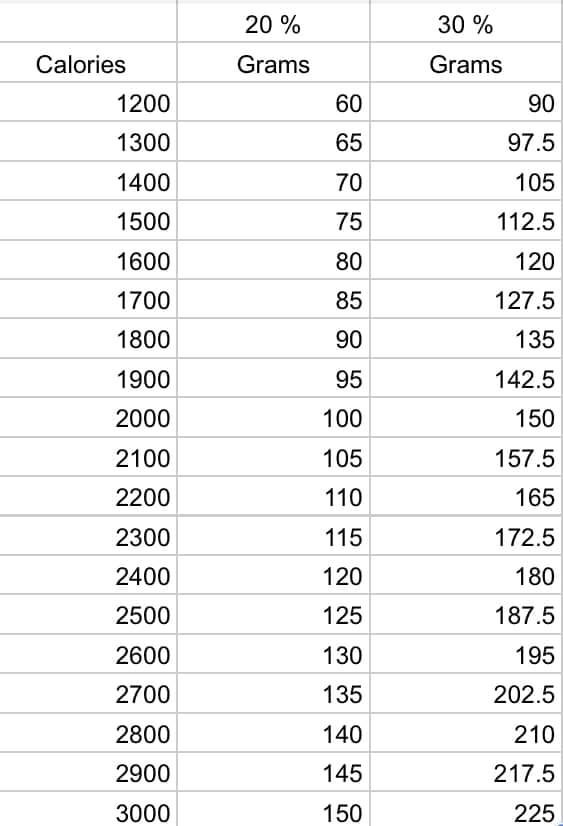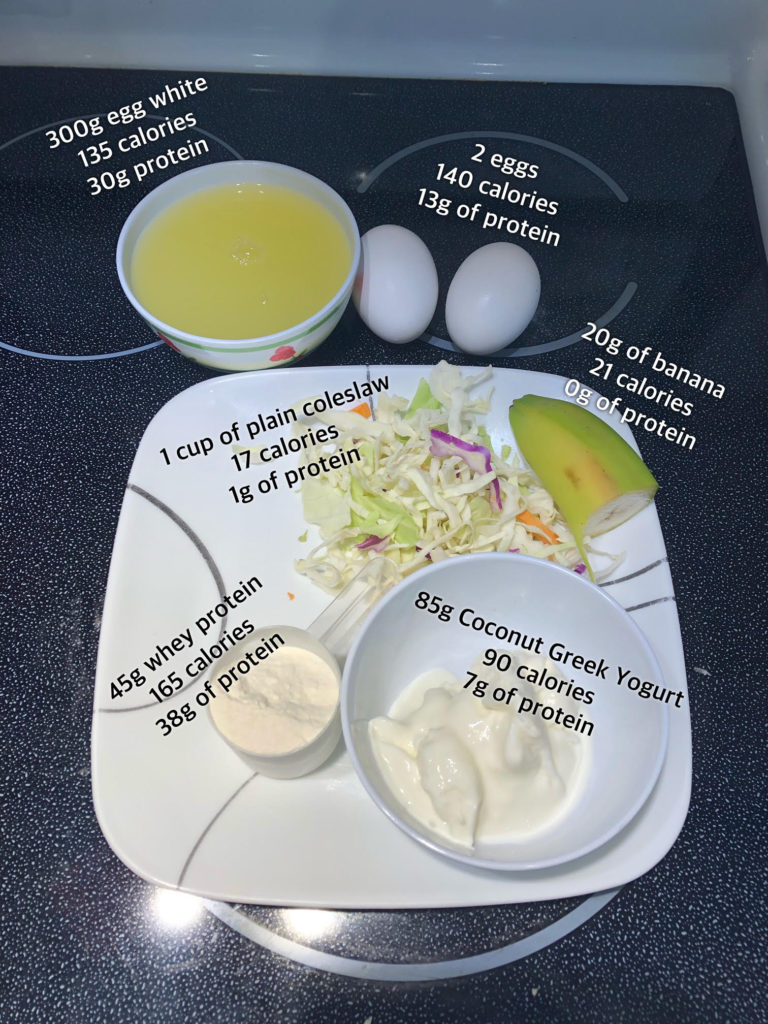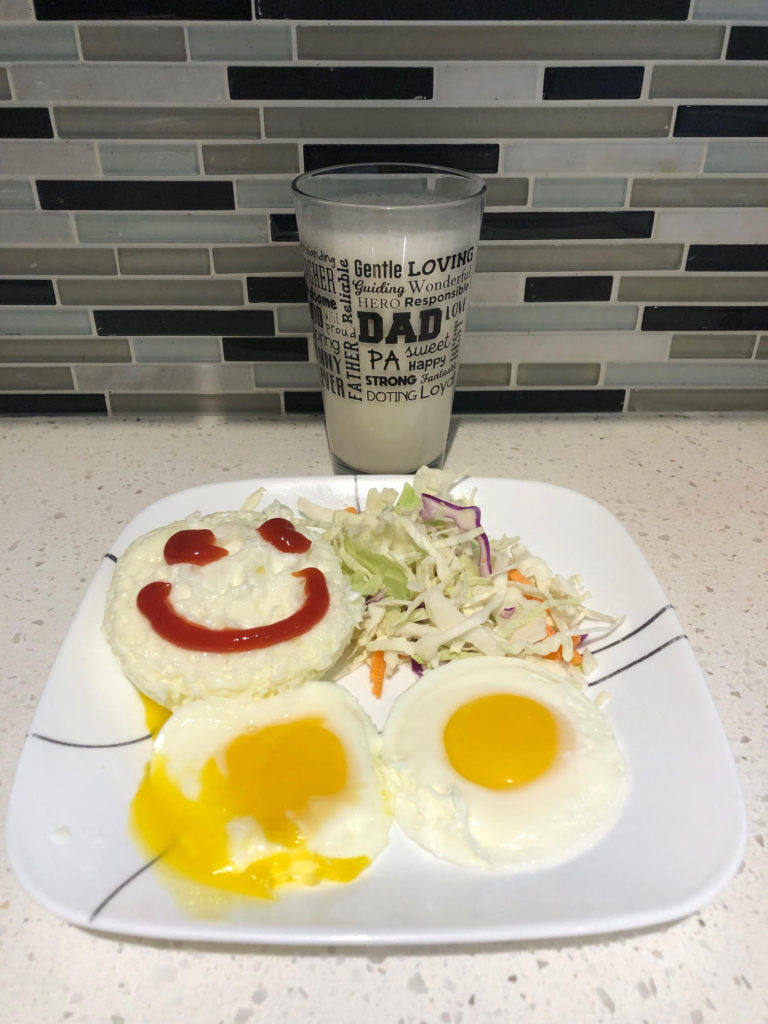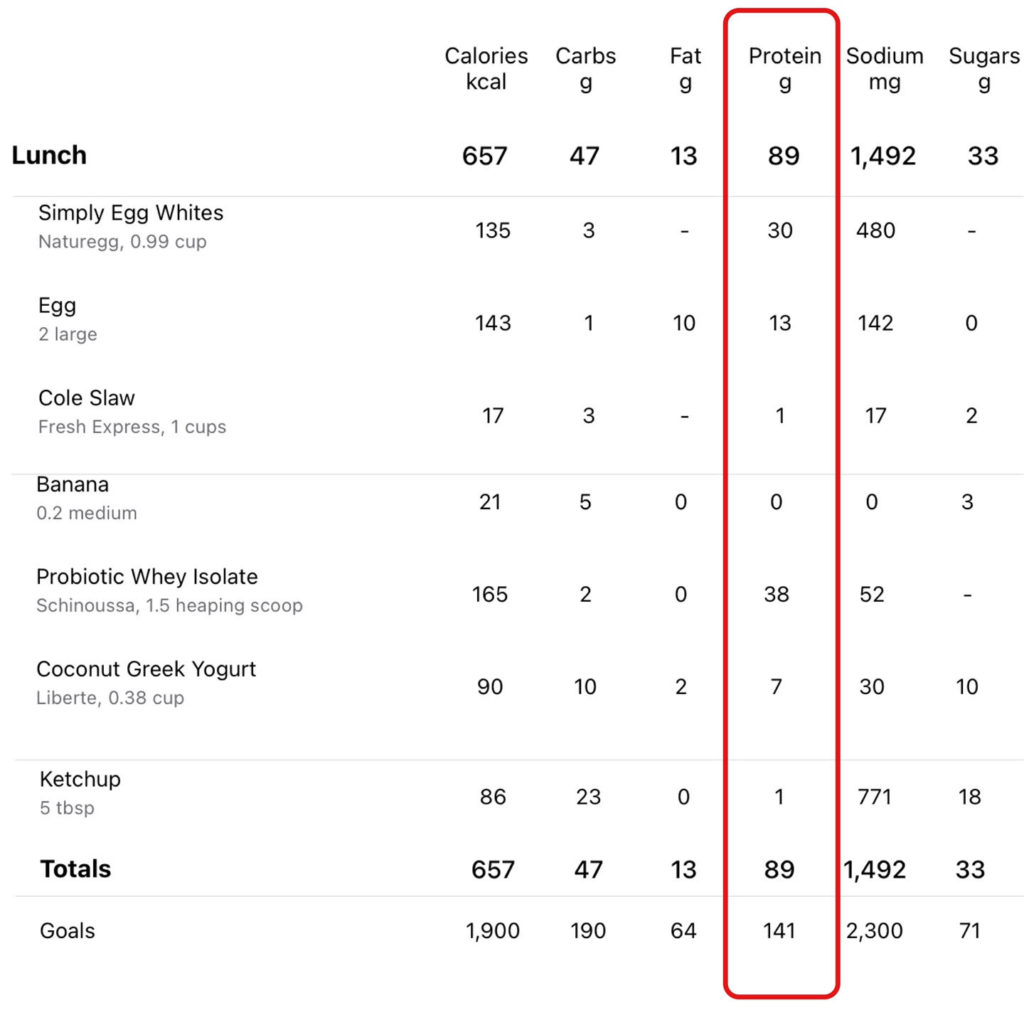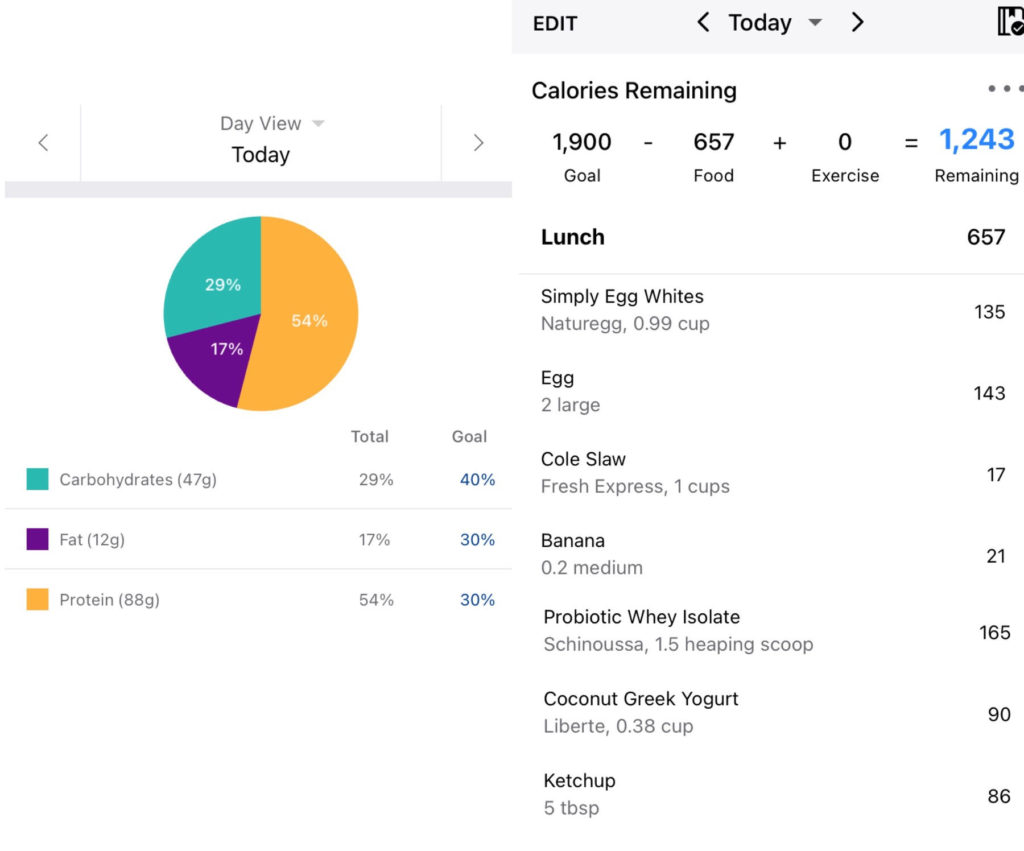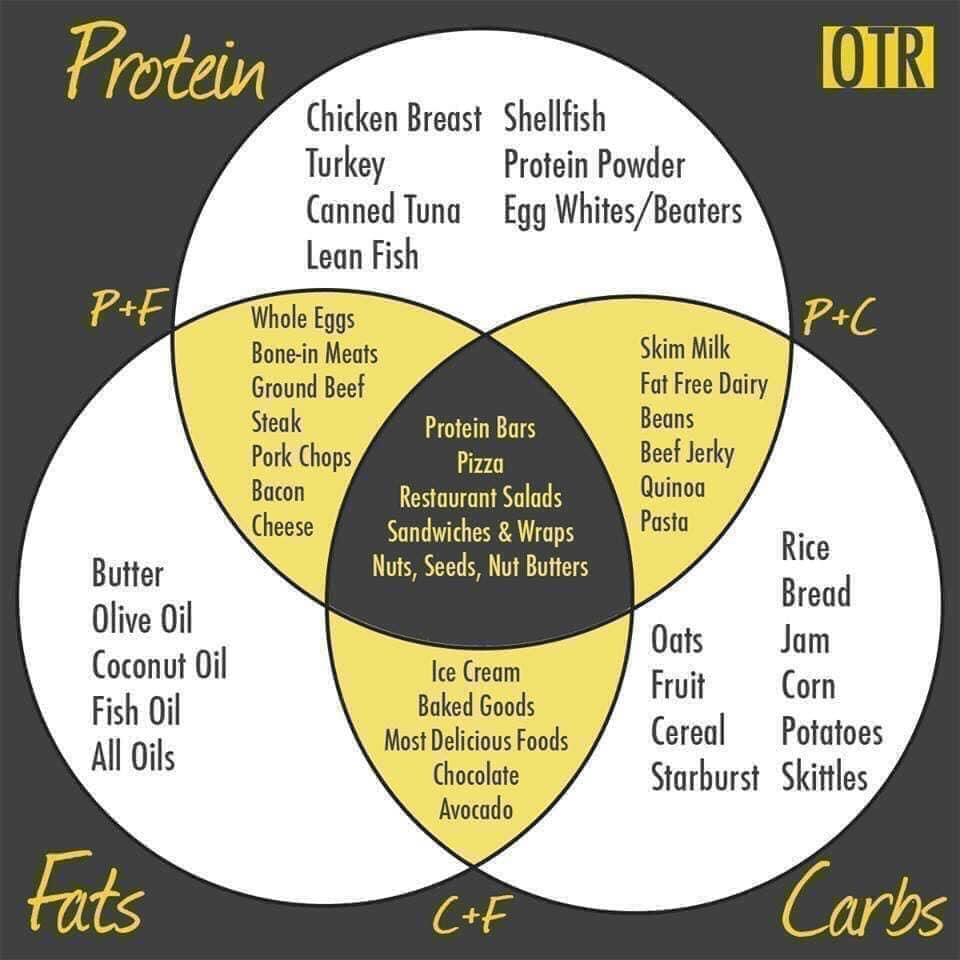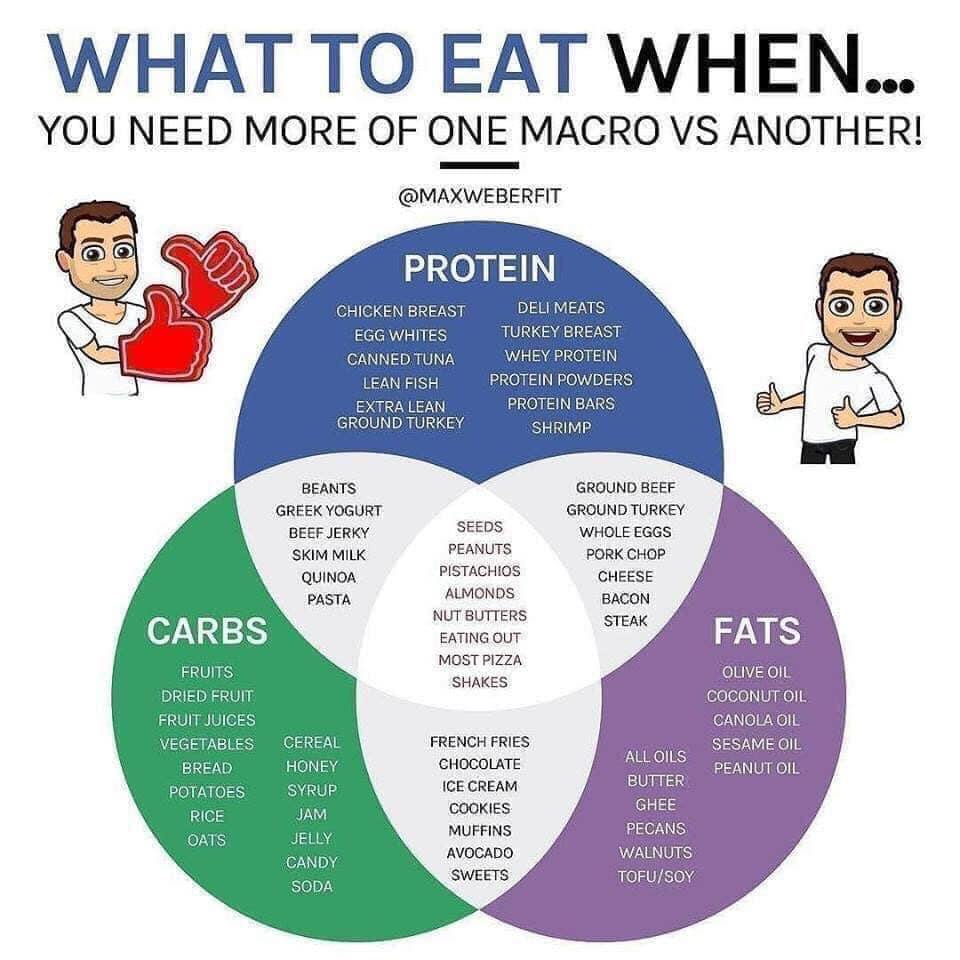Protein Strategies
Protein Strategies
Eating enough protein will ensure you will be FULL and less likely to snack. When you combine this with veggies it's such a powerful tool for weight loss. This is how you make being in a calorie deficit easy and also once you get to maintenance this still holds true.
Also as you lose weight you can lose lean muscle especially if you are not doing any resistance training. So to salvage some muscle you want to keep the protein up.
As a reminder
1g of protein = 4 calories
1g of carbs = 4 calories
1g of fat = 9 calories
What I suggest is to get 20-30% of your intake in protein.
Here is a chart to make it easier as a reference but I will do the math for you below. Sometimes its easier to understand when you see it in a formula fashion
So let's assume you eat around 1900 calories a day on average. That would mean you should shoot for around 95g to 142.5g of protein per day.
How the math works
1900 calories x 20% is 380 calories
Protein in grams = 380/4 = 95g
1900 x 30% is 570 calories
Protein in grams = 570/4 = 142.5g
To make it easier to get your daily protein requirements, I suggest to FRONT LOAD your protein. In other words get at least half of your requirements by lunch.
Once you understand the numbers, you can experiment and see what works for you.
Here is an example of someone eating 1900 calories and wants to get 30% protein (142.5g). Here is how they could FRONT LOAD and get at least 90g of protein, more than half their goal.
The whey protein, banana and yogurt is made into a shake. The egg whites and egg were simply cooked in a microwave. The coleslaw is added for satiety. Here is the final product.
Here is a breakdown of the numbers
Now that over half of their protein requirement is satisfied, this person will be full and the chances of snacking will be reduced. For the rest of their day they can have foods higher in carbs and fat. This also gives them the flexibility to enjoy something indulgent for dinner as they will likely have enough calories to spare.
If you eat breakfast and lunch you can easily split this meal up into 2 parts. That way it's not so overwhelming. Feel free to experiment to see what works for you.
Key Takeaways:
Get at around 20-30% of your total daily intake in protein.
Get at least 50% of that required amount by lunch to make it easier on you and to set your day up for success.
You can get an idea of different proteins to try by looking at the Venn diagrams below.

